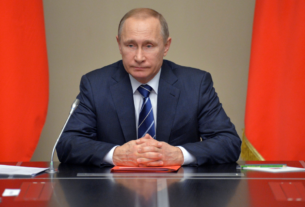Ukraine has reached an agreement with the United States to grant access to its vast mineral resources, a top official confirmed. The deal, expected to be signed during President Volodymyr Zelensky’s visit to Washington, is aimed at strengthening Ukraine’s economic and security ties with the U.S.
“This agreement opens new opportunities for both nations,” a senior Ukrainian official said. The deal will allow the joint development of Ukraine’s rare earth minerals, which are essential for technology and defense industries.
The U.S. is set to receive 50% of revenue from Ukraine’s mineral extraction. Earlier negotiations included American demands for a $500 billion financial commitment, sparking concerns over resource control, economic fairness, and long-term geopolitical implications.
Ukraine holds some of the world’s largest untapped reserves of rare earth minerals. These materials are crucial for industries such as electric vehicles, semiconductors, and military technology.
Key Details of the Agreement
- Mineral Rights: The U.S. gains access to Ukraine’s rare earth minerals for commercial and defense use.
- Financial Terms: Revenue from mineral extraction will be shared equally between both countries.
- Strategic Importance: The deal strengthens U.S. control over critical resources, reducing reliance on China.
- Security Ties: Ukraine seeks military assurances alongside the economic partnership.
- Expected Signing: Zelensky and Trump are set to finalize the deal this Friday.
“I defend Ukraine; I can’t sell our country,” Zelensky stated. He stressed the importance of protecting national sovereignty while pursuing economic cooperation with the U.S.
Critics argue that the agreement could make Ukraine overly dependent on American influence. Some lawmakers believe European allies should have been involved to ensure a more balanced and strategic partnership.
“This agreement prioritizes America’s interests,” President Donald Trump told reporters. His administration claims it will provide vital resources for U.S. industries while strengthening Ukraine’s post-war economic and infrastructure recovery.
Ukraine’s vast mineral reserves are worth trillions of dollars, making them a critical asset. Experts believe this agreement could generate billions in economic aid, attract global investors, and boost Ukraine’s long-term financial stability and industrial growth.
Some European leaders have expressed concern over the bilateral nature of the agreement. They argue that minerals critical to Europe’s energy transition should not be controlled by one country.
Security experts warn that the deal could escalate geopolitical tensions. Russia has previously targeted Ukraine’s industrial sites, and greater U.S. involvement may provoke further attacks.
The White House has defended the agreement as a step toward economic stability. U.S. officials argue that securing access to critical minerals is vital for reducing reliance on China and boosting domestic manufacturing.
Critics claim the agreement gives the U.S. too much control over Ukraine’s resources. They argue that a more balanced approach would involve multiple international partners rather than a single country.
The deal could reshape global supply chains for rare earth minerals. If successful, it may shift control of these critical materials away from China and Russia.
U.S. lawmakers are expected to review the agreement in the coming weeks. Some officials may push for additional oversight to prevent potential exploitation of Ukraine’s resources.
Ukraine faces a difficult decision in balancing economic recovery with sovereignty. While the mineral deal provides financial relief, its long-term consequences remain uncertain.
The international response to the agreement will be closely watched. European nations may seek alternative partnerships to secure their own mineral supplies.
Your perspective matters in this debate. Should Ukraine partner exclusively with the U.S., or should it involve more international allies? The agreement’s impact will become clearer in the coming months.




